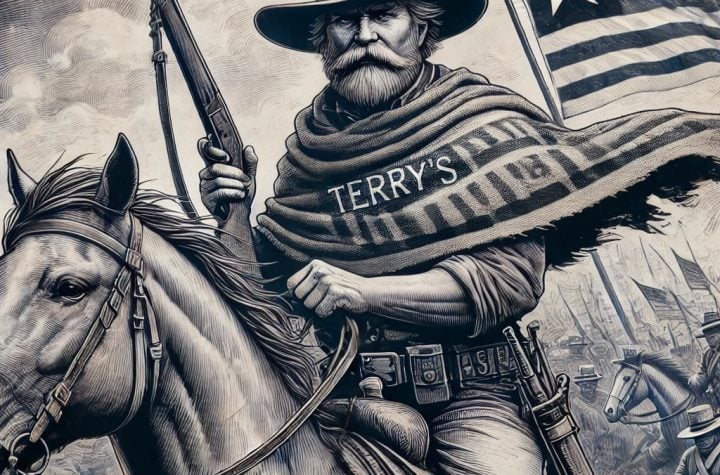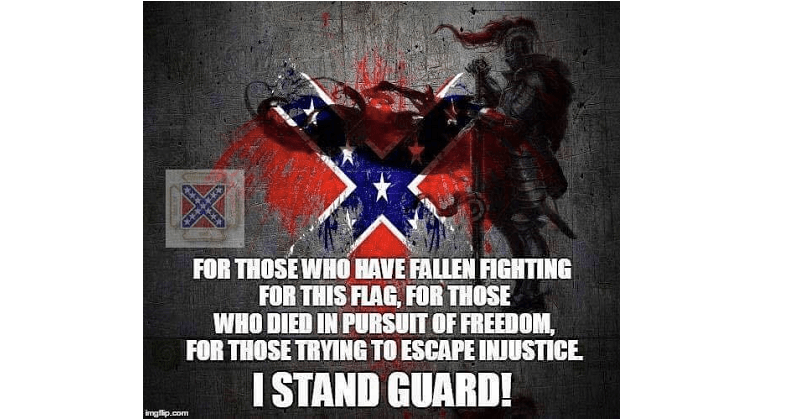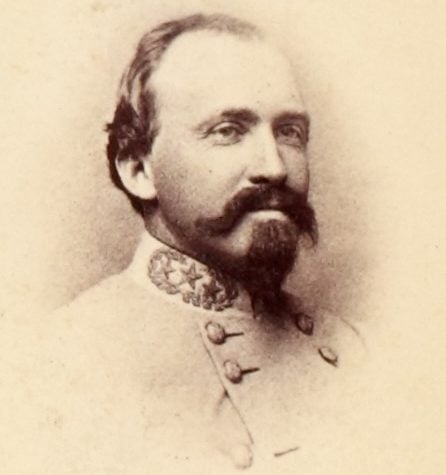Here’s how one of the men who served under Confederate General Turner Ashby described him:
“Imagine a man with thick coal black hair, heavy black beard, dark skin, large black eyes, sleepy looking except when the Yankees are in sight. Then they do flash fire…”
General Turner Ashby came from a long line of military officers. His grandfather served in the Revolutionary War, and his father in the War of 1812. Starting at a young age, he developed remarkable skills on horseback. He worked his farm in Virginia and formed a cavalry called the “Mountain Rangers” to protect his land and property. Later, after the Civil war began, it was only fitting that he gather his militia to go serve in the Confederate Army under Stonewall Jackson.
His exploits became legendary. He was known as “the Knight of the Valley” and “The Black Knight of the Confederacy.” His men were in awe of him, and Union soldiers, it is said, would sit around around their campfires listening to tales of this larger than life, mythic figure – General Turner Ashby.
A Union soldier once said of him, “Shot, shell, rain, hail, snow… all are apparently the same to him. He will quit a meal at any time for a chance at a Yankee.” In fact, Ashby was so fierce in battle that the Federals had him marked as a man to take down.
A British soldier of fortune named Wyndham set out with his force with the order to “bag” him. It seems Wyndham was quite the fancy dresser, and Rebels teased and made fun of him. They were not about to be taken by such a fellow. Wyndham, upset by their lack of respect: “He swore, O how he swore! The louder he swore, the louder the Rebels laughed.”
Later on that day in June 1862, a larger force attacked, and the battle was ferocious. The Rebels were victorious, but in the rain and fog, Ashby’s horse was shot out from under him.
As he recovered the fall, he raised his sword, shouting “Charge, men! For God’s sake, charge!” They said he was a man of few words, and when did speak, he meant what he said.
And charge they did. But at that moment, Ashby took a bullet through his heart and was lost. It was a tragic loss for the South, but the only fitting way for a brilliant cavalry man like Ashby to go down.
![]() Stonewall Jackson later wrote, “His daring was proverbial, his powers of endurance almost incredible, his tone of character heroic…The Confederacy had no truer or braver soldier.”
Stonewall Jackson later wrote, “His daring was proverbial, his powers of endurance almost incredible, his tone of character heroic…The Confederacy had no truer or braver soldier.”




More Stories
General Dwight D. Eisenhower’s Reflection on Robert E. Lee
Sad Woke Charlottesville liberals Melt down infamous statue of Robert E Lee
NC Appeals Court rules for Town of Louisburg in removal of Confederate monument